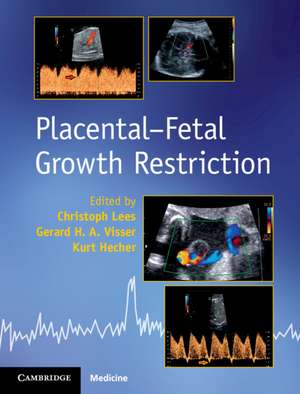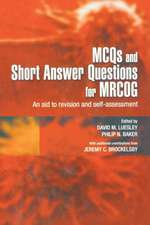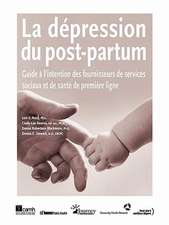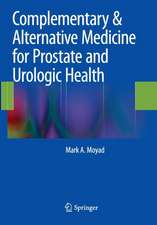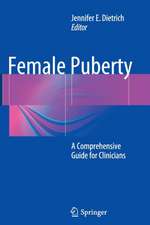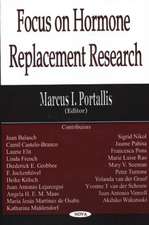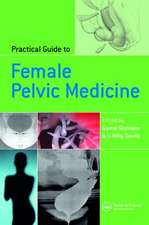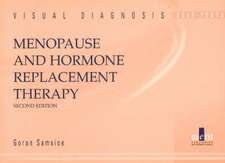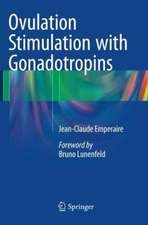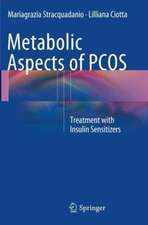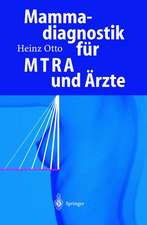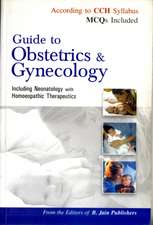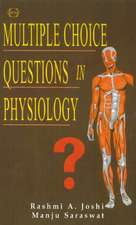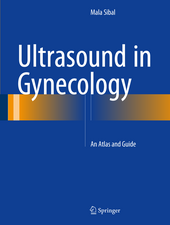Placental-Fetal Growth Restriction
Autor Christoph Lees, Gerard H. A. Visser, Kurt Hecheren Limba Engleză Hardback – aug 2018
Preț: 760.15 lei
Preț vechi: 800.15 lei
-5% Nou
Puncte Express: 1140
Preț estimativ în valută:
145.47€ • 151.32$ • 120.10£
145.47€ • 151.32$ • 120.10£
Carte tipărită la comandă
Livrare economică 10-16 aprilie
Preluare comenzi: 021 569.72.76
Specificații
ISBN-13: 9781107101395
ISBN-10: 1107101395
Pagini: 294
Ilustrații: 15 b/w illus. 42 colour illus. 38 tables
Dimensiuni: 194 x 253 x 17 mm
Greutate: 0.84 kg
Editura: Cambridge University Press
Colecția Cambridge University Press
Locul publicării:New York, United States
ISBN-10: 1107101395
Pagini: 294
Ilustrații: 15 b/w illus. 42 colour illus. 38 tables
Dimensiuni: 194 x 253 x 17 mm
Greutate: 0.84 kg
Editura: Cambridge University Press
Colecția Cambridge University Press
Locul publicării:New York, United States
Cuprins
Part I. Basic Principles: 1. What is optimal fetal growth? Blanka Vasak and Gerard H. A. Visser; 2. Definition of fetal growth restriction and uteroplacental insufficiency Wessel Ganzevoort and Basky Thilaganathan; 3. Differential diagnosis of fetal growth restriction S. Usman, A. Lawin-O'Brien and Christoph Lees; 4. Fetal growth restriction and hypertensive diseases of pregnancy Christopher W. G. Redman and Anne Cathrine Staff; 5. ART and fetal growth Christoph Brezinka and Shirin Khanjani; 6. Fetal growth restriction study design and outcomes Hans Wolf and Wessel Ganzevoort; 7. Analysis of national and international guidelines on placental-fetal growth restriction Gemma Malin, Lesley McCowan, K. E. Boers and Jim G. Thornton; Part II. Maternal Cardiovascular Characteristics and the Placenta: 8. Maternal cardiovascular function and fetal growth restriction Rosemary Townsend and Asma Khalil; 9. Placental histopathology findings in fetal growth restriction Neil Sebire and William Mifsud; 10. Maternal volume homeostasis in fetal growth restriction Johannes J. Duvekot; Part III. Screening for PFGR: 11. First trimester combined screening algorithms for fetal growth restriction Rosemary Townsend and Asma Khalil; 12. Second trimester and late pregnancy screening for fetal growth restriction Raffaele Napolitano and Pasquale Martinelli; Part IV. Prophylaxis and Treatment: 13. Prophylaxis for fetal growth restriction: aspirin and low molecular weight heparins Federico Prefumo and Tiziana Frusca; 14. Prophylaxis for fetal growth restriction: nitric oxide donors and sildenafil Dietmar Schlembach; 15. Prevention and Treatment of Fetal Growth Restriction by influencing maternal hemodynamics and blood volume Herbert Valensise, Barbara Vasopollo and Gian Paolo Novelli; 16. Gene therapy in fetal growth restriction Rebecca N. Spencer, David J. Carr and Anna L. David; Part V. Characteristics of Fetal Growth Restriction: 17. Blood flow volume in umbilical vein in fetal growth restriction Enrico Ferrazzi, Daniela Di Martino and Tamara Stampalija; 18. Fetal cardiac function in fetal growth restriction Fatima Crispi and Eduard Gratacos; 19. Heart rate changes and autonomic nervous system in fetal growth restriction S. M. Lobmaier, K. T. M. Schneider and G. H. A. Visser; 20. The fetal arterial and venous circulation in IUGR Kurt Hecher and Werner Diehl; 21 Hematological and biochemical findings in fetal growth restriction and the relationship to hypoxia Irene Cetin and Chiara Mandò; Part VI. Management of Fetal Growth Restriction: 22. Management of early-onset fetal growth restriction (less than 34 weeks) Tullia Todros and Giovanna Oggé; 23. Late-onset intrauterine growth restriction Katia Bilardo and Francesc Figueras; 24. Severe IUGR: pregnancy management at the limits of viability Aris T. Papageorghiou and Wessel Ganzevoort; 25. Fetal growth restriction in twin pregnancies Isabel Couck, Kurt Hecher and Liesbeth Lewi; Part VII. Postnatal Aspects of Fetal Growth Restriction: 26. Fetal growth restriction and neonatal outcomes R. S. Gandhi and N. Marlow; 27. Fetal growth restriction and later disease in the mother and the offspring Birgit Arabin and Petra Arck; 28. Fetal growth restriction: recurrence risks and counseling Jan Derks and Steven Koenen.
Recenzii
'It is logically organised in seven sections and 28 chapters, which take the reader through basic principles, screening for the problem through to management, and postnatal effects. There is a chapter dedicated to currently available guidelines and a whole section (five chapters) dedicated to each aspect of fetal physiology … Clear illustrations combined with ultrasound images and management algorithms are provided as appropriate. One of the main strengths of the book is its readability, making it accessible to a wide audience, from trainees to fetal medicine specialists, and as such useful for anyone currently delivering antenatal care.' Alina Vais, The Obstetrician & Gynaecologist
Notă biografică
Descriere
Master the effective evaluation of placental-fetal growth restriction (PFGR), whilst developing strategies to reduce the risk of perinatal mortality and morbidity in patients worldwide.
